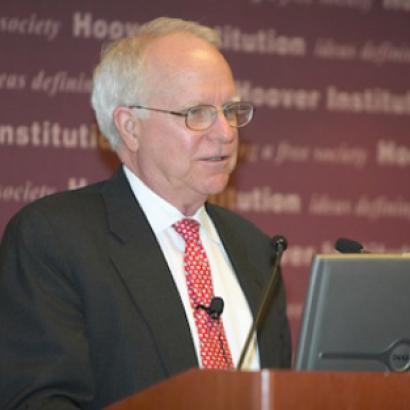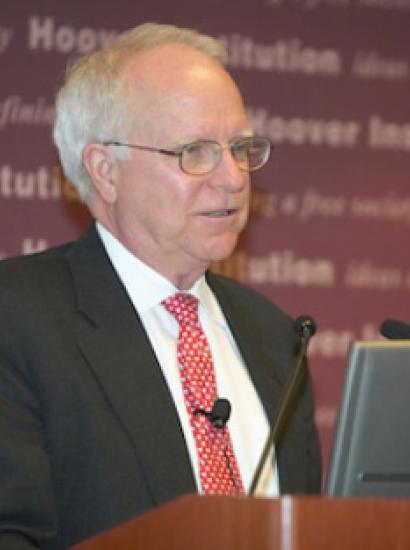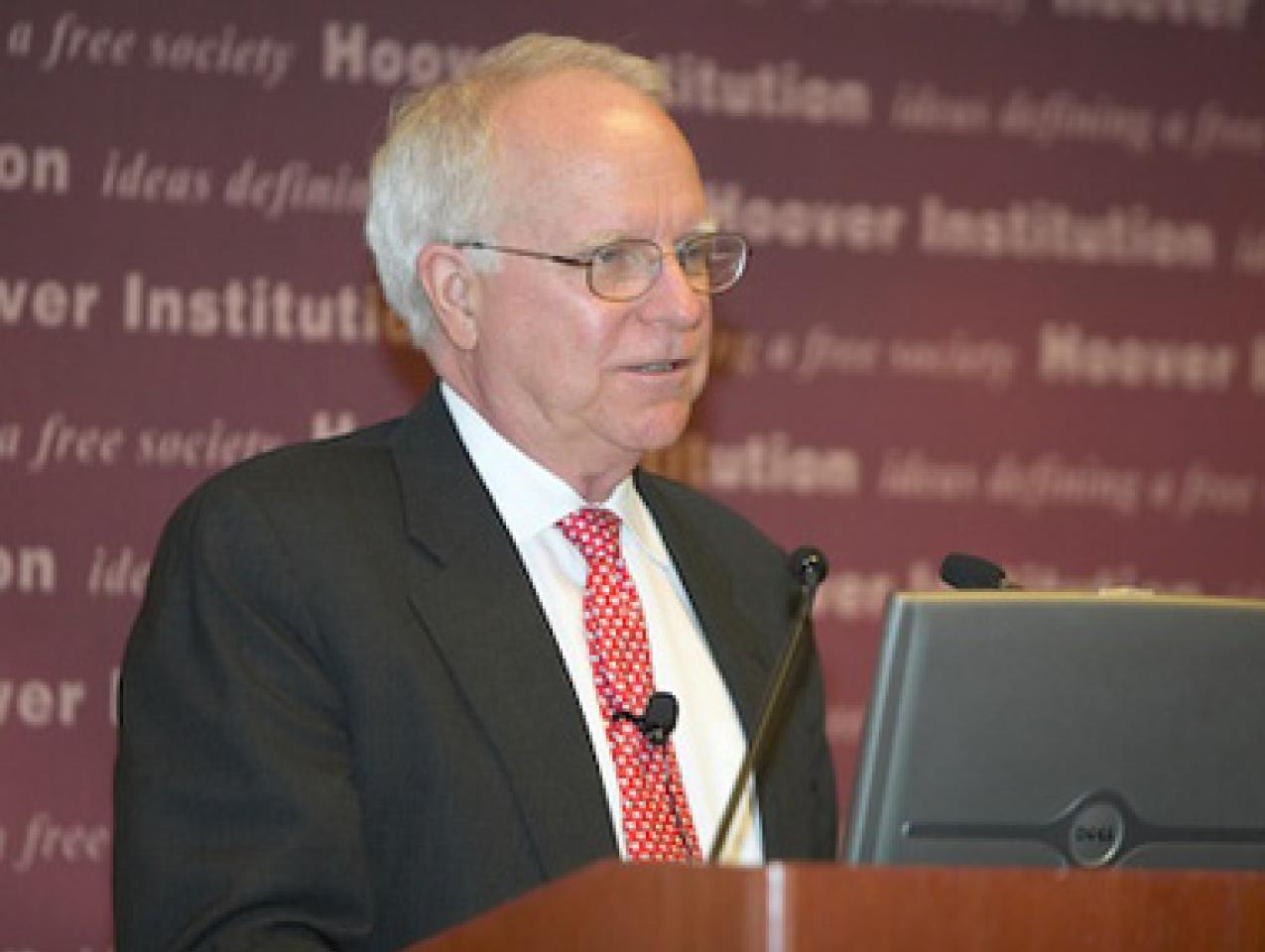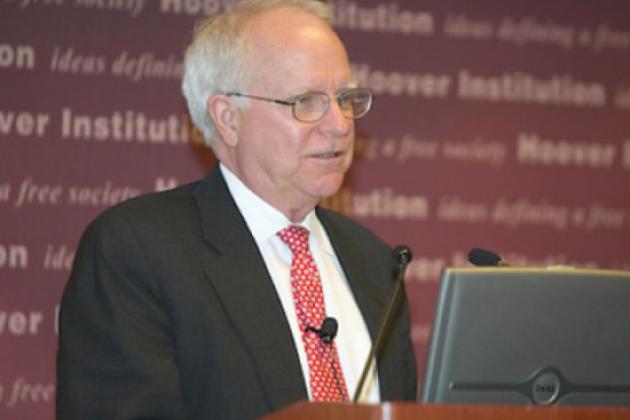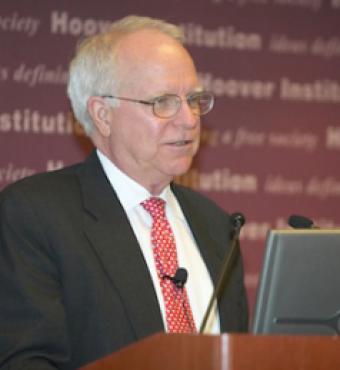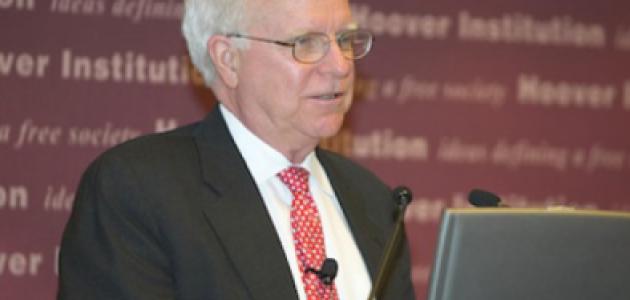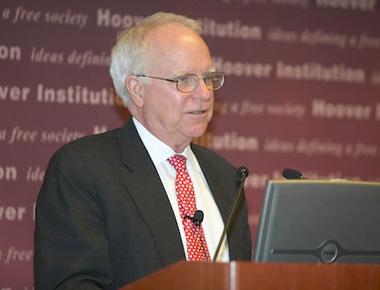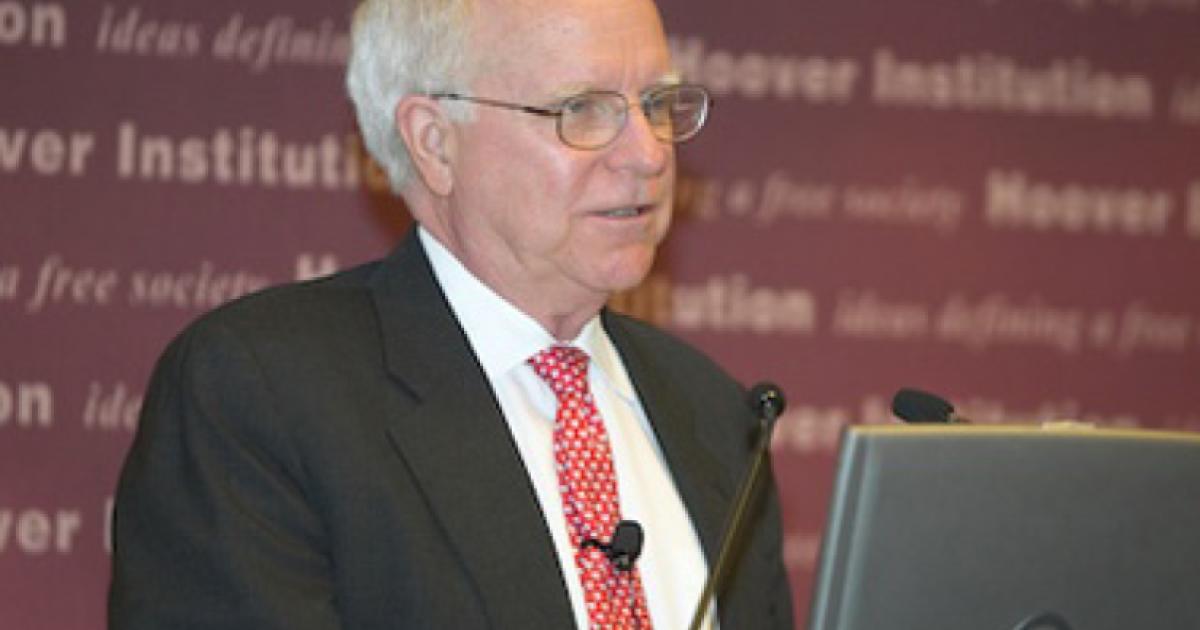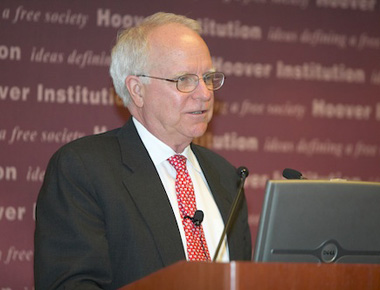
Robert E. Hall, who holds a joint position endowed by Robert and Carole McNeil as a senior fellow at the Hoover Institution and a professor in the economics department at Stanford University, is now president-elect of the American Economic Association.
Slated to become president of the organization in 2010, Hall will succeed Angus Deaton of Princeton University.
Hall is an applied economist, known for his expertise in the areas of capital formation, the stock market, monetary policy, inflation, taxation, and unemployment. He is a frequent contributor to discussions of national economic policy, including monetary policy, fiscal policy, and competition policy. His research focuses on levels of activity, employment, and stock market valuations in market economies and on the economics of high technology
Hall is an active proponent of tax reform based on the principles of consumption taxation. His article with Alvin Rabushka in the Wall Street Journal in December 1981 was the beginning of an upsurge of interest in a tax system with simple postcard returns. The pair published a book, The Flat Tax (Hoover Institution Press, 1985 and 1995), explaining the system in detail. Hall and Rabushka were recognized in Money magazine’s Money Hall of Fame for their contributions to financial innovation.
Hall is coauthor, with Marc Lieberman, of Economics: Principles and Applications, 4th edition (South-Western, 2007).
He also serves as director of the research program on economic fluctuations and growth of the National Bureau of Economic Research, an interuniversity research organization. He is chairman of the bureau's Committee on Business Cycle Dating, which maintains the semiofficial chronology of the U.S. business cycle.
Hall has advised a number of government agencies on national economic policy, including the Justice Department, the Treasury Department, and the Federal Reserve Board. He served on President-elect Ronald Reagan's Task Force on Inflation Policy and was a member of the National Presidential Advisory Committee on Productivity. He has testified on numerous occasions before congressional committees concerning national economic policy. He presented the Ely Lecture to the American Economic Association in 2001.
Before coming to Stanford, Hall was on the faculties of the Massachusetts Institute of Technology and the University of California, Berkeley.
Born in Palo Alto, California, he attended school in Palo Alto and Los Angeles, receiving his B.A. from the University of California at Berkeley and his Ph.D. from the Massachusetts Institute of Technology.
The American Economic Association was organized in 1885 at a meeting in Saratoga, New York, by a small group interested in economics. It was incorporated in Washington, D.C., on February 3, 1923. The purposes of the association are the encouragement of economic research, especially the historical and statistical study of the actual conditions of industrial life, the issue of publications on economic subjects, and the encouragement of perfect freedom of economic discussion.







